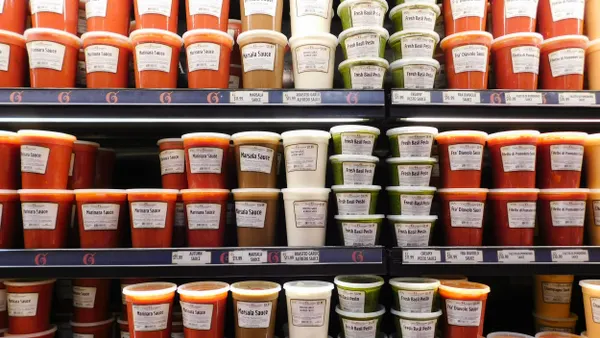Dive Brief:
-
According to a report from the digital brand protection software firm Incopro, 26% of American consumers have accidentally bought at least one counterfeit product in the past year, and 52% of U.S. consumers have lost trust in a brand after buying a fake good online.
-
Per the report, 64% of consumers said they will lose trust in an online marketplace after buying fake goods, and 51% of shoppers said the same after buying fake goods found via search engines.
-
But while consumers have lost faith in brands that have sold fake goods, the report also found that 32% of consumers considered purchasing counterfeit clothing, jewelry and leather goods as acceptable. Plus, 25% of consumers don't think that it's important for online influencers and celebrities to provide an authentic representation of themselves.
Dive Insight:
The sale of fake items has been a problem for retailers for some time, especially during the holiday season. Online marketplaces like Amazon, eBay and Etsy have often been the subject of scrutiny for counterfeit goods sold on their sites. Amazon has been combating counterfeit goods, through its transparency service, which uses unit codes to verify authentication, and "Project Zero" which uses advanced tech with the brands' product knowledge to combat fakes, in addition to fending off claims of facilitating fake merchandise sales. If nothing else, the Incopro report indicates that online marketplaces may have to work harder to remove fake items from their platforms.
Amazon, in particular, has been the target of brands seeking to curb sales of knock-offs. Last December, Williams-Sonoma sued the online retail giant for allegedly selling knockoffs of its West Elm brand. After selling its merchandise on Amazon to stop the sale of counterfeits, Nike pulled its products from the site in November, opting only to use Amazon Web Services for its site and mobile apps. (Last December, U.S. Customs and Border Protection seized $1.7 million of fake Nike shoes.)
Meanwhile, brands and resale merchants alike have attempted to address fake goods in court and online. In February, David Yurman won about $1.6 million in a lawsuit against websites selling counterfeit merchandise. Ralph Lauren, Goodwill and LVMH, have introduced digital tools to track products throughout their lifecycles and stop the sale of knockoffs.
But why do some shoppers, per Incopro's report, think that buying fake luxury items is OK? The answer could be price, according to a report from the International Trademark Association. The report found that Gen Z shoppers said income outweighed morality, except if fake goods were found to be harmful to human health.
"With the shopping peak upon us, the risks of counterfeit activity are amplified as online shoppers seek out deals this holiday season," Incopro Chief Strategy Officer Piers Barclay said in a statement. "Consumer education and leadership on this matter is needed from public influencers, including online marketplaces, policymakers, brands, and search engines, to avoid a deeper plunge into the abyss of the black market."














